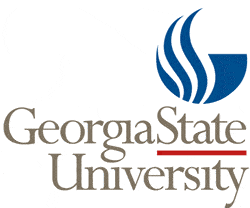Georgia State Fair Use Lawsuit Plaintiffs File Appeal

On the conference call, Sage CEO Blaise Simqu suggested that the decision to appeal was made with the consultation of a group of Sage’s “textbook” authors, asserting that the authors had overwhelmingly supported Sage’s pursuit of the appeal. OUP president Niko Pfund, meanwhile, acknowledged that the litigation puts the press in a delicate spot, suing their customers, but said the decision was flawed, and if left to stand would threaten publishers who operate on “razor thin” margins.
Hardly all textbook authors are in such firm support, however. Publishers Weekly quotes University of Virginia professor Siva Vaidhyanathan as being afraid he would lose his job if the publishers prevailed, since a publisher victory would throw into doubt the safety of professors providing course material packets to students.
Various organizations are lining up on either side of the case. The Copyright Clearance Center, which has helped find the publishers’ side, is going on about “clarifying the balance embodied in fair use,” disregarding the fact that the judge’s ruling was pretty clear as it was—just clearly not what publishers wanted it to be. The Association of American Publishers, also supporting the plaintiffs, complains the ruling promotes digital copyright infringement. On the other side, the Association of Research Libraries criticizes the publishers and those organizations for lacking “understanding or respect for the fair use rights” of academics.
This comes at a time when a Bookboon.com survey of 10,000 college students reports that over 75% of students in the United States don’t buy their college textbooks new because they’re too expensive and only needed for a few chapters. (In the UK, the number is 83.3%.) 60% of students buy second-hand, according to the survey, and 58% of students in the US prefer digital textbooks. (There wasn’t any mention of what percentage admitted to downloading illegally.)
So it’s not surprising that academic publishers are trying to hold onto every last bit of copyright power that they possibly can. Indeed, as thin as textbook margins are getting, it would almost be surprising if they didn’t. It’s a bit worrisome, though, to reflect what might happen if the margins get too thin to support the publishers. What will happen to our education industry if the textbook industry collapses?
Well, presumably some new industry would arise from the ashes. We’re always going to need some way to educate the next generation, and if one fails we’ll end up finding another.


Comments
Isles September 11, 2012 um 10:28 pm
I’m surprised there is no mention of the Author’s Guild in relation to this story.
The Author’s Guild = copyright ambulance chasers
Charly September 12, 2012 um 8:00 am
I would think the solution was obvious.
From taxes, pay two professors to write a book about their topic. Then make it available for free download.
Repeat this with all the other topics, and suddenly the world saves billions.
Same thing with most lectures really. Tape them, put them online –> half the university expenses.
As a student I currently am expected to pay about a thousand euros a year. This for books which half the time I don’t even need to open. Hardly motivating to buy new ones.
S.Nenonen September 12, 2012 um 11:05 am
I don’t think publishers should be allowed to make money out of kids and students at all, tbh. Not sure whether it’s international issue, but at least where I come, the textbooks get "updated" every year, meaning the publishers mostly shuffle the contents in the book, not really adding anything new, just to hinder the use of previous editions in classrooms. I’ve unfortunately had few teachers retarded enough to buy into this, demanding the use of latest available edition.
That said, I’m having hard time buying the "razor thin margins".
Georgia State and Fair Use: The Copyright Winner — Columbia Copyright Advisory Office January 22, 2013 um 8:29 pm
[…] (GSU) is within fair use. Following a series of important procedural moves, the case is now set for appeal to the 11th Circuit. As the parties and other interested groups prepare their legal […]